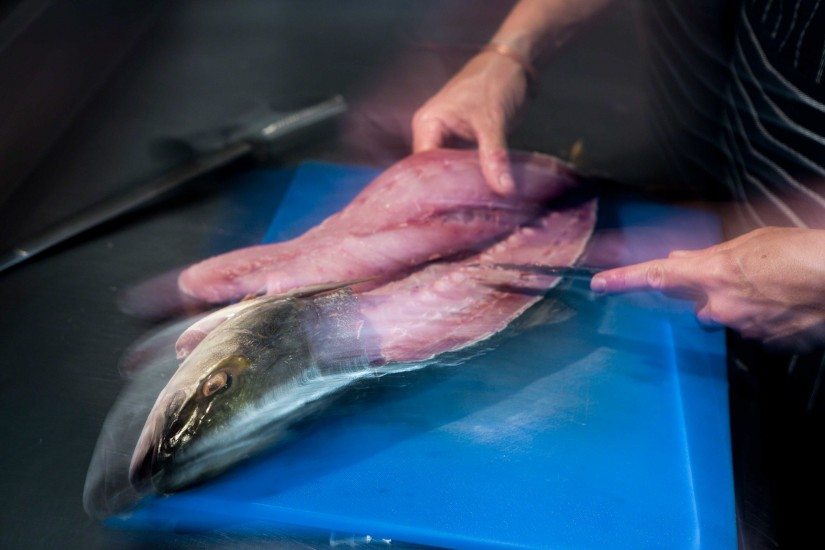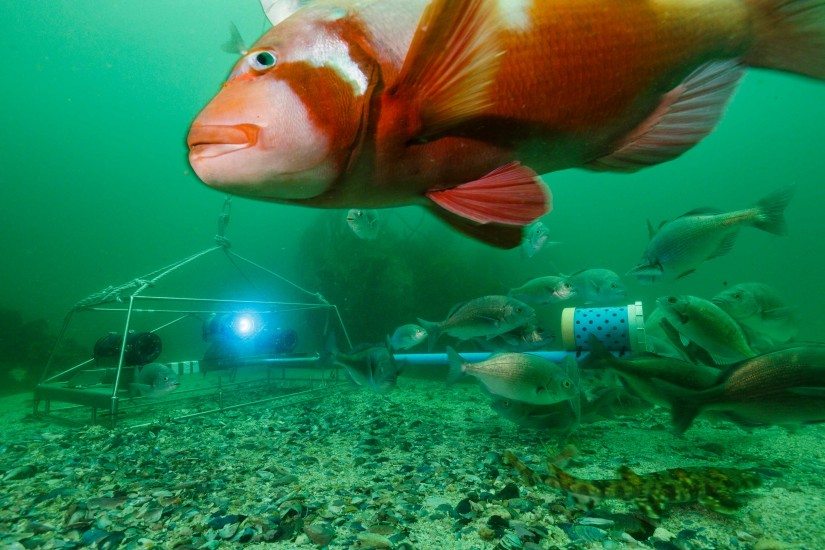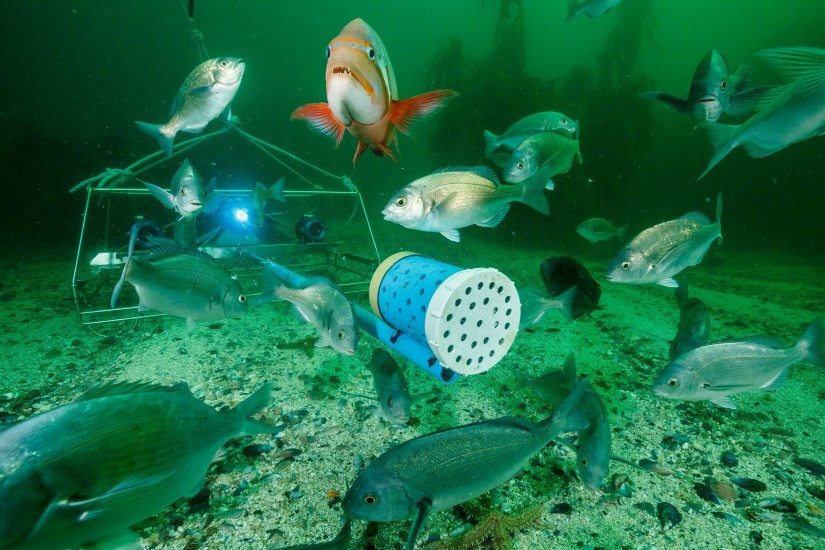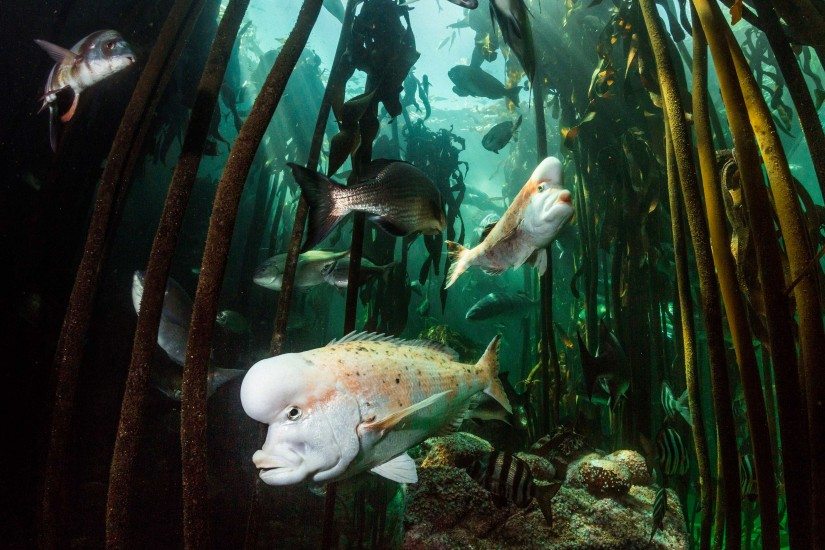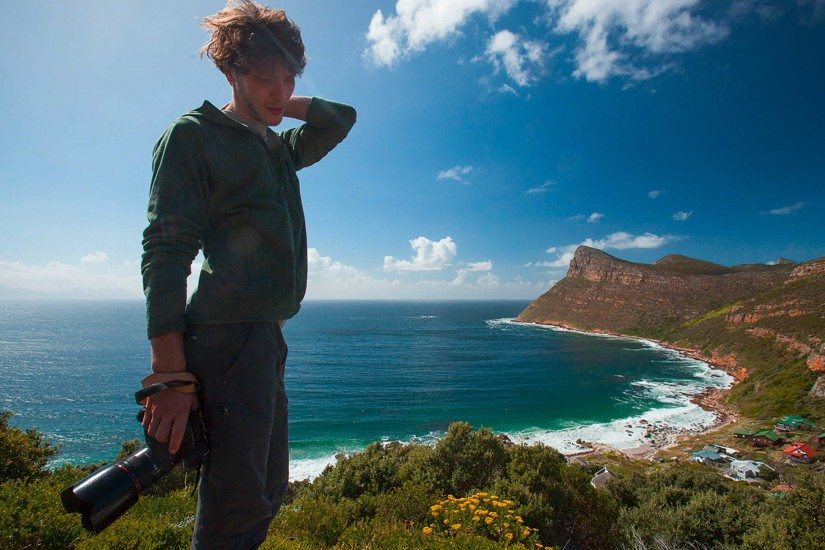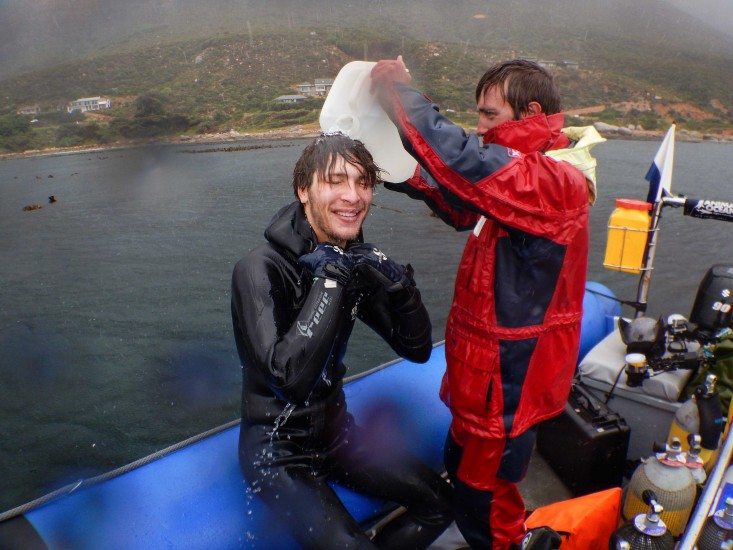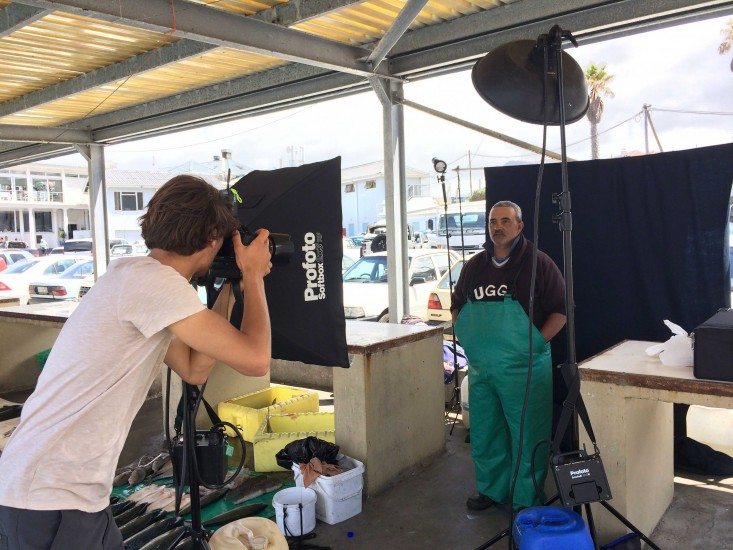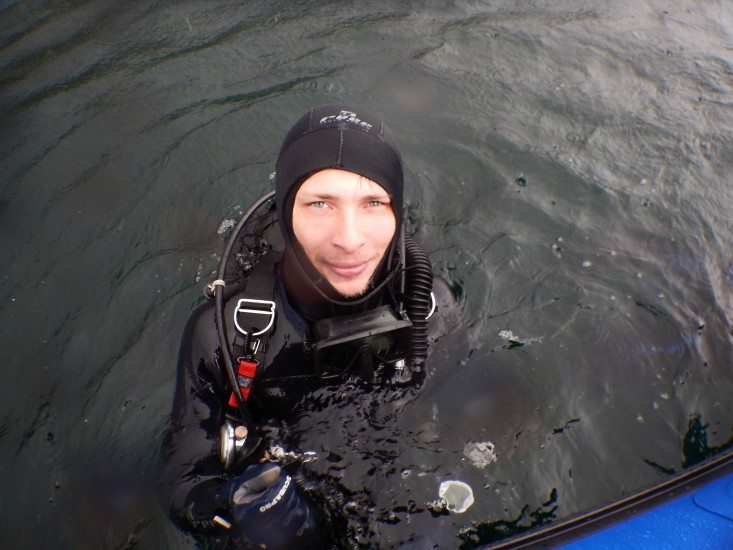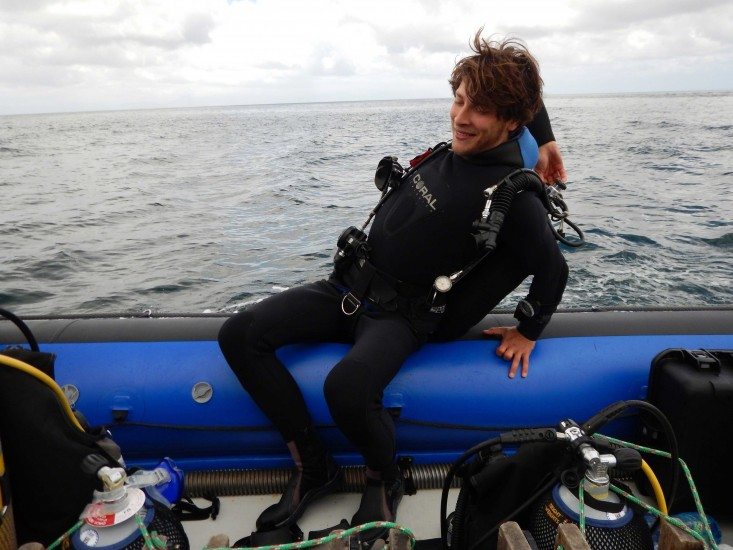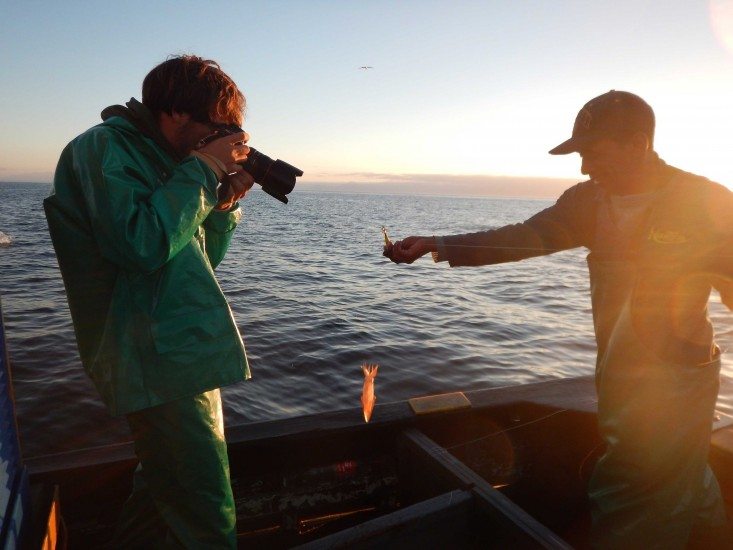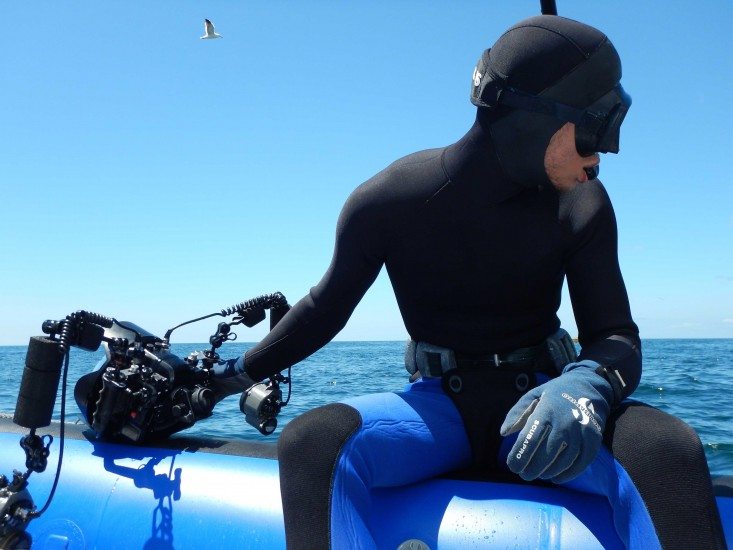Behind the Scenes: Joris van Alphen
On Assignment
SOSF Marine Conservation Photography Grant 2014
‘False Bay’s rocky reef fish are more endangered than Africa’s rhinos’ was the one-sentence story brief that landed in my inbox one month before I set foot in South Africa. It was the start of an exciting yet also daunting adventure.
False Bay is an exceptionally beautiful place, with some of the richest coastal waters on the planet set against a dramatic backdrop of equally remarkable mountains. I fell in love with it almost instantly. Words can’t describe what it feels like to be out on the water there. I would dive among fairytale-like kelp fronds and colourful reef fish while the occasional seal or shark zoomed by, and then surface to find a pod of humpback whales cruising past just a stone’s throw away. Then I’d hoist myself back onto the boat to return to shore and watch gannets fly over as the setting sun broke through the clouds, washing the bay in that golden light that seems unique to Africa.
Any assignment presents its challenges and frustrations, and this one proved to be no exception. To tell the story of False Bay’s rocky reef fishes, I wanted to capture three main subjects: the fishes themselves, the people who fish for them, and the scientific research efforts to ensure that fish and fishermen alike have a future. Although it has an abundance of exciting wildlife and inspiring views, False Bay is a deceptively tough place to work in. Treacherous south-easterly winds taunt the place in summer. Blowing straight into its mouth, they turn the otherwise sheltered bay into a washing machine. Often this meant that none of us – photographer, fishermen or scientists – could head out to sea. It soon became clear that the bulk of the photo story would have to come together in precious few days of actual shooting. When the stormy weather held on for more than a week it was all I could do to keep feelings of doubt and fear of failure from getting to me.
SOSF Marine Conservation Photography Grant
The Save Our Seas Foundation believes that photography is a powerful tool for marine conservation. We invite emerging conservation and wildlife photographers who have a passion for marine subjects to apply for our 2016 grant. This is a unique opportunity for photographers to go on assignment, earn an income and gain experience under the guidance of National Geographic photographer Thomas Peschak.

